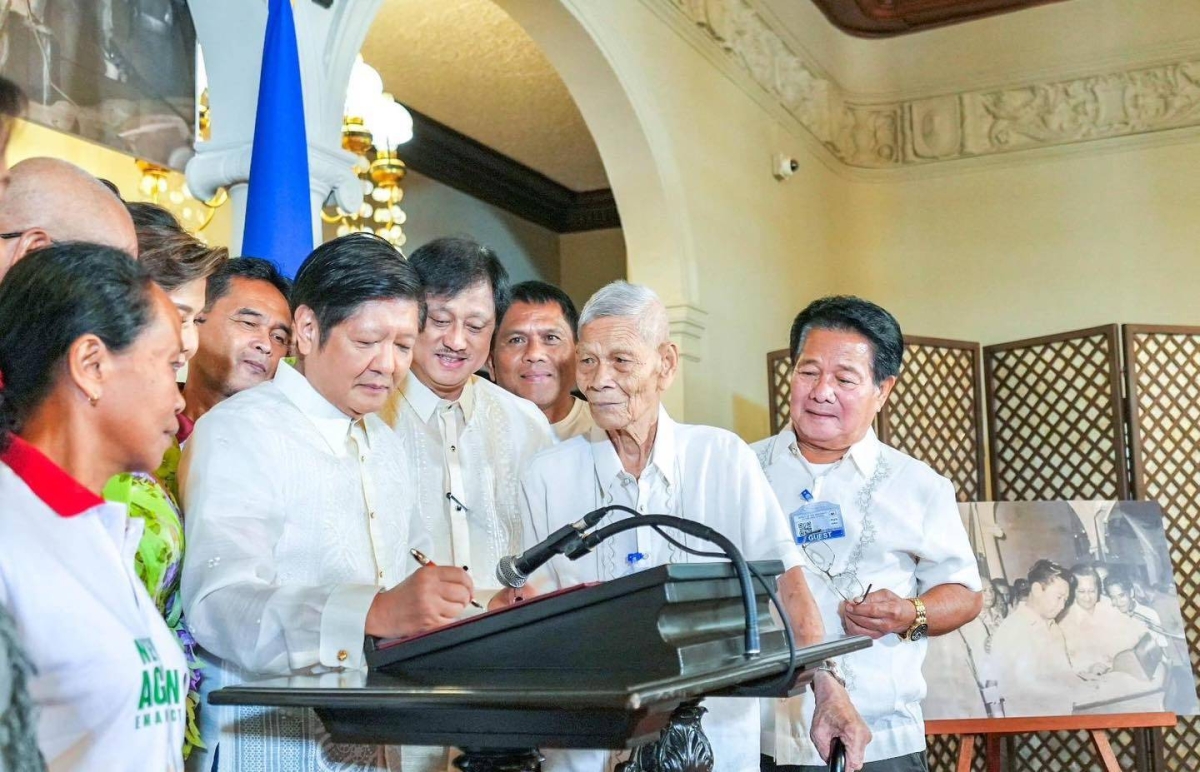News
Philippines Writes-Off Debt for 500,000 Farmers to Boost Food Production

President Ferdinand Marcos of the Philippines waived off $1.04 billion in land-related debt owed by more than 500,000 farmers on Friday, aiming to enhance food production.
The “New Agrarian Emancipation Act” he signed into law cancelled all property-related debt owing by farmers who were allocated land on 30-year payment terms during a land reform initiative in 1988 but were unable to pay.
“We know these farmers do not have the financial means to repay this massive debt.” So placing it on the government’s dime is the proper thing to do,” Marcos remarked at a signing ceremony at the presidential palace.
The write-off of the government-issued loans meant that “we are doing everything in order to feed our people,” he continued.
Roughly 4.8 million hectares (11.9 million acres) of plots were handed to nearly three million landless farmers under a law passed roughly a year after Marcos’ father and namesake was deposed in a bloodless “People Power” rebellion in 1986.
The total amounted to 16% of the country’s land area.
The new legislation was passed by Congress because roughly 1.2 million hectares of redistributed farmland had gone payed for, and the farm sector’s contribution to the country’s economic production was declining.
The write-off will benefit nearly 610,000 land reform beneficiaries while costing the government 57.65 billion pesos ($1.04 billion), according to Marcos. He said that the government will spend an additional 206 million pesos to compensate landowners whose properties were transferred to tenants.
“We need to revitalise the agriculture sector,” added Marcos, who is also the agriculture minister.
Following his election last year, the archipelago nation saw food shortages and skyrocketing costs for farm goods such as onions and sugar, while imports of rice, a dietary mainstay, also increased.
Philippines Peoples Power Revolt
The “People Power” revolution was a series of public uprisings in the Philippines that resulted in substantial political changes. The People Power Revolution, also known as the EDSA Revolution or the People Power Revolution, happened in 1986. It resulted in the overthrow of President Ferdinand Marcos’ authoritarian rule and the restoration of democracy in the Philippines.
The country faced significant corruption, human rights violations, and economic problems throughout Marcos’ administration. The assassination of opposition leader Benigno Aquino Jr. in 1983 provoked public indignation and fueled the popular movement against the Marcos administration. The opposition, led by Aquino’s widow, Corazon Aquino, and included numerous civil society organisations, religious leaders, and military factions, organised enormous protests calling for political reform.
Millions of Filipinos congregated along Manila’s Epifanio de los Santos Avenue (EDSA) in February 1986, giving rise to the term “EDSA Revolution.” The peaceful protests lasted several days and included nonviolent opposition tactics such as prayers, speeches, and acts of civil disobedience. The military also played an important role, with defections from Marcos‘ own ranks supporting the people’s movement.
The strain on Marcos eventually proved unbearable, and he departed the nation, seeking asylum in the United States. Corazon Aquino, largely considered as the opposition movement’s emblem, took office and instituted important political and social reforms. The EDSA Revolution is frequently hailed as a dramatic example of peaceful resistance, and it has had a profound impact on democratic movements worldwide.
Following the 1986 revolution, the Philippines has had a series of political upheavals, some of which have been dubbed “People Power revolts.” Notable examples include the EDSA Dos protest in 2001, which resulted in the removal of President Joseph Estrada, and the EDSA Tres demonstration in 2001, which supported Estrada’s return to office. Although impactful, these subsequent actions lacked the scope and historical significance of the initial People Power Revolution.





























